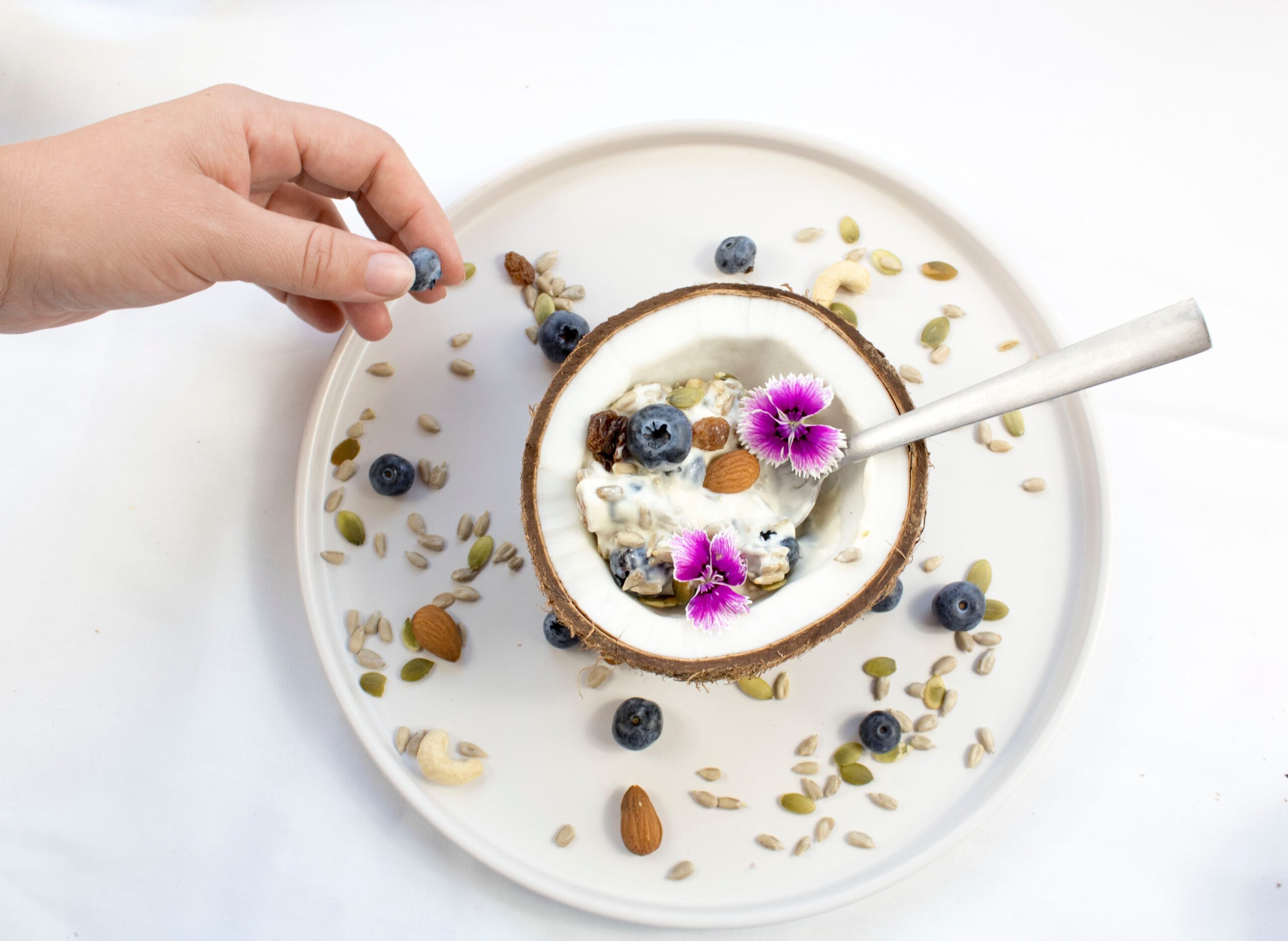Coconut yogurt is a delicious and creamy dairy-free alternative to regular yogurt. In this article, we will discuss the nutrition facts of coconut yogurt and its health benefits.
Coconut milk has become extremely popular in the West as of late. It tastes like creamy milk and is used in a variety of sweet and savoury dishes. It is rich in lauric acid, which is known to have antimicrobial properties. In fact, lauric acid is one of the main components of human baby oil.
There are many benefits of consuming coconut milk. It is rich in health-promoting minerals such as copper, iron, and zinc. It is also a great source of dietary fibre and fatty acids.

Nutrition Facts of Coconut Yogurt
Coconut yogurt is rich in dietary fibre, protein, and fat. One cup of coconut yogurt contains 4g dietary fibre, 5.5g protein and 8.5g fat. Dietary fibre is essential for digestive health. It can increase the volume of stool and reduce the risk of intestinal disorders such as constipation and diarrhea.
Protein is vital for building healthy muscles and tissue. It can also reduce the risk of muscles weakening with age.
Fat is essential for human metabolism. They are known as “essential fatty acids”, and the human body cannot produce them. Fatty acids are crucial for good brain function, skin health, and immunity. Coconut yogurt is rich in MCT (medium-chain triglycerides) fatty acids. MCTs are known to have weight-loss properties due to their ability to turn into energy in the body without gorging the appetite.
Health Benefits of Coconut Yogurt
Coconut yogurt is a healthy dairy-free option for people who cannot or choose not to eat dairy. It contains less lactose than traditional cow’s milk, but many people with lactose intolerance may be more comfortable avoiding it entirely.
Calcium is a requirement for bone strength, especially as the initial growth and development of bones happen in our youth. If you don’t eat dairy products, it’s still possible to get the calcium you need through fortified dairy alternatives like coconut yogurt. Check food labels to make sure the product you choose is fortified because coconut alone isn’t a significant source of calcium.
The natural fats in coconut help your body to absorb Vitamin A and other fat-soluble vitamins. For example, if you eat a spoonful of it with pumpkin or mango, you’ll also get more vitamin A from those foods.
6 Ways to Consume Coconut Yogurt
Coconut yogurt can be consumed plain, with a mix of fresh fruits, in smoothies, in porridge, soup, or in sweet and savoury dishes.
– Plain: Put a couple of spoonfuls into your bowl and eat it.
– Mix with fruits: Try mixing a spoonful of coconut yogurt with strawberries or bananas.
– Porridge: Pour a cup of coconut milk yogurt into your favourite bowl of oats. Add fruits, granola, nuts, and seeds for an extra-healthy breakfast.
– Soup: Try mixing a spoonful of yogurt with veggies and legumes for an extra-healthy soup.
– In sweet and savoury dishes: Add a spoonful of coconut yogurt to a salad, soup, or a veggie burger for an extra-healthy meal.
And of course our favourite:
- Put it into your smoothie! It’s so delicious and adds a beautiful tropical flavour to your smoothies. Yum!
Conclusion
Coconut yogurt is a delicious and creamy dairy-free option to regular yogurt. It is rich in dietary fibre, protein, and fat. It is rich in health-promoting minerals such as copper, iron, and zinc. It is also a great source of dietary fibre and fatty acids. In addition, coconut yogurt can be consumed plain, with a mix of fresh fruits, in smoothies, in porridge, soup, or in sweet and savoury dishes.

